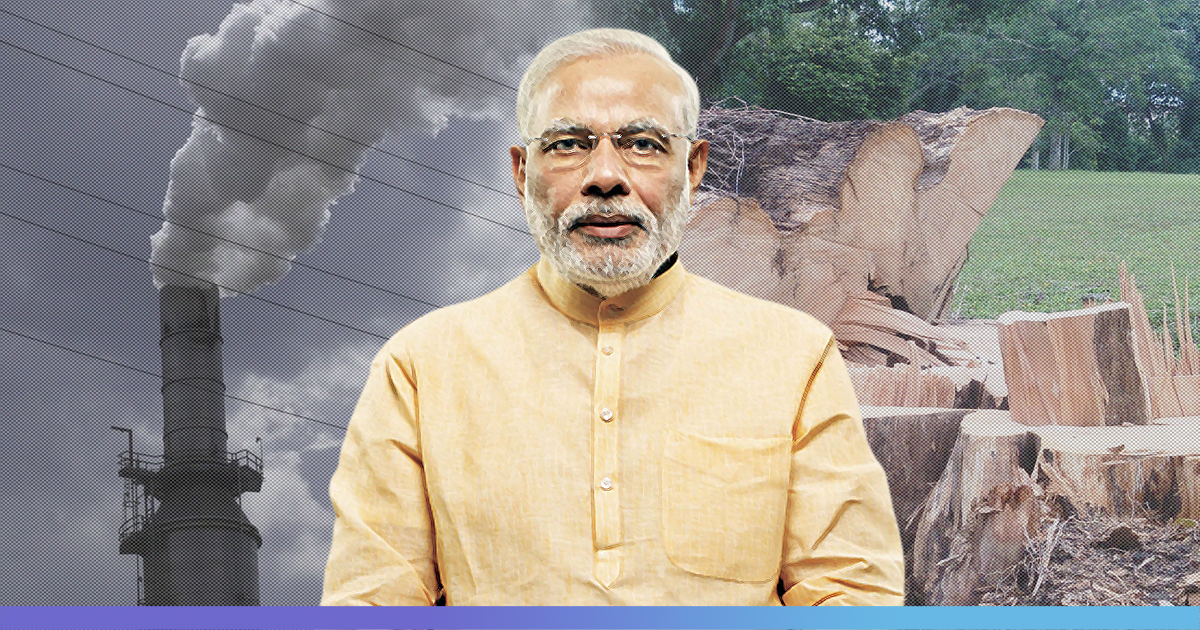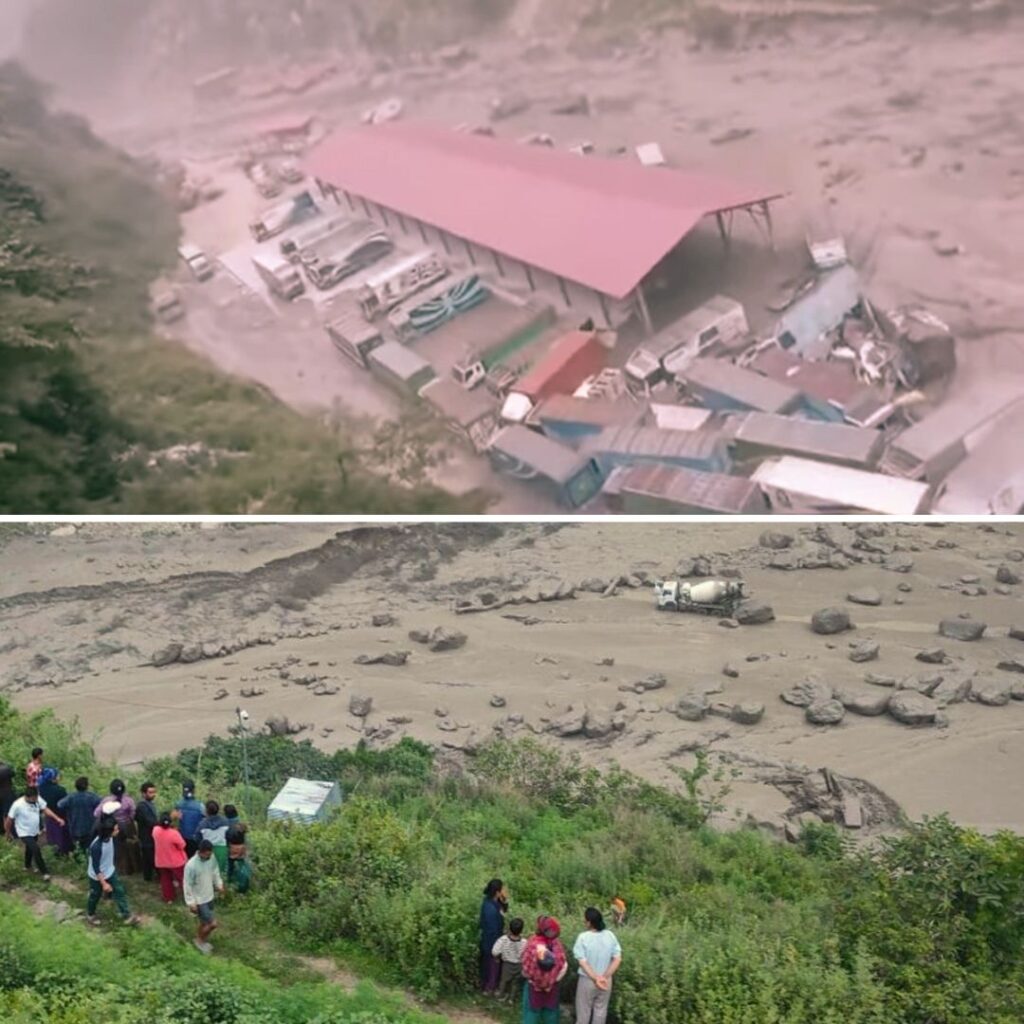Student: “We in Assam feel very concerned about climate change and its consequences. Sir, how can you help and guide us to protect our pristine environment?”.
It was a genuine question coming from a student in Assam. The reply might astonish you.
Man: “Climate has not changed. We have changed. Our habits have changed. Our habits have got spoiled. Due to that, we have destroyed our entire environment.”
The reply came from our current Prime Minister Narendra Modi.
Contrast this with the 2014 manifesto in which BJP said, “We will take climate change mitigation initiatives with all seriousness and work with the global community and institutions in this regard.”
The response of the government head is contrary to the promises made in the manifesto is the bedrock of BJP government as 43 promises have been broken, the independent analysis by Election Promises Tracker shows. But we would restrict ourselves to their environmental promises.
Since coming into power in 2014, the BJP government has emphasized the need for speedy clearances, removal of red tape and bottlenecks. The nation was made to believe that tough environmental laws are an impediment to infrastructure development. It formed a committee to suggest amendments in the six environmental laws of the country that form the bedrock of all regulations – Environment (Protection) Act, 1986; Forest (Conservation) Act, 1980; Wildlife (Protection) Act, 1972; Water (Prevention and Control of Pollution) Act, 1974; Air (Prevention and Control of Pollution) Act, 1981; and Indian Forest Act 1927. However, the government faced heavy resistance from experts and activists, due to which it never implemented the changes fully.
Under the Environment Protection Act 1986, a notification last year rejigged the regulatory norms which made it easier to construct along the coastline for development activities like tourism and real estate. However, environmentalists warned that these would give violators a free hand, and lead to considerable damage along the coastlines. The devastating Kerala floods is a grim reminder to the detrimental effects of toying with the environment.
Last year, the government made another bid to ease environmental regulations, stipulating that construction projects that are less than 50,000 square metres don’t require green clearance. In effect, it meant that such projects will be allowed to progress without authorities issuing permissions after the check of environmental conditions. The building and construction sector is governed under the Environmental Impact Assessment (EIA) notification 2006 under which any project of more than 20,000 square metres requires permission.
In December 2016, the Ministry of Environment & Forests (MoEF) introduced a new system wherein projects up to 300,000 square metres would not need the mandatory Environment Clearance (EC) after state authorities integrated environmental conditions with building bye-laws. But this was challenged in January 2018 at the NGT as “a ploy to circumvent the provisions of environmental assessment”.
The environment ministry notified the Compensatory Afforestation Fund (CAF) rules 2018 to ensure proper utilisation of Rs 660 billion for the plantation of trees across India. However, environmentalists and civil society groups argued that the rules ignore the rights of forest dwellers and tribes and that the new rules are against the existing laws that safeguard their right to self-governance in scheduled areas and forest rights. Former environment minister Jairam Ramesh has also criticised the rules stating that they are in violation of assurances that were given in the Parliament in 2016 by the then environment minister Late Anil Dave.
Climate change and environmental degradation are the most dangerous predicament, this world is sitting on right now. Recent protests in Mumbai, Delhi, Gurugram and Bengaluru are testaments to collective courage our citizenry can demonstrate to save our environment. We as the concerned citizens of India need to remind the political parties of the urgency and criticality of our environmental degeneration. The damage done to the environment by the current dispensation is something no one should forget. The upcoming elections are the pertinent platform where we should hold our political class accountable for their blunders and implore them to improve.
In the manifesto, BJP committed to ‘frame the environment laws in a manner that provides no scope for confusion and will lead to speedy clearance of proposals without delay’. Setting aside the fact that the promise itself is broken as detailed analysis of the promise reveals, irony had died a thousand deaths, when BJP mentioned about the environmental laws under the ‘Industry’ segment in its election manifesto for 2014 general elections. Revealed its complete disregard for the environment, our health and the lives of our children. Since when have we stopped caring about our children? Indeed, more than the climate, it is us who are changing. Prime Minister is probably right.
Also Read: 3 Years Of PM Modi Government: Know What Was Promised And What Is Delivered











